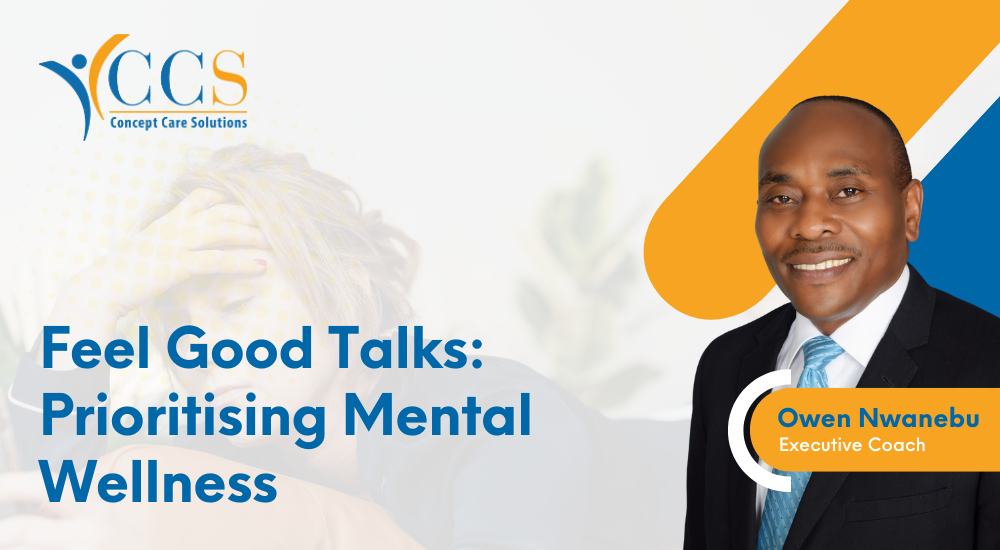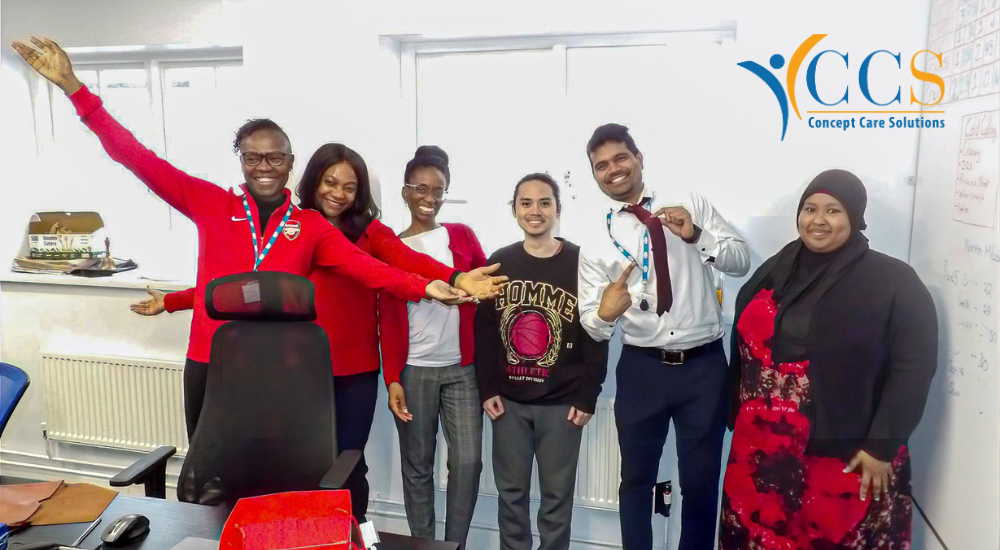Celebrating Learning Disability Week 2024: “Do You See Me?”

Learning Disability Week 2024, organized by Mencap, runs from June 17th to June 23rd. This year’s theme, “Do You See Me?”, focuses on ensuring people with learning disabilities are seen, heard, and valued in our communities. This blog will explore the significance of this week, the planned activities, and how Concept Care supports individuals with learning disabilities. What is Learning Disability Week 2024? Learning Disability Week is an annual event that raises awareness about the experiences and challenges faced by individuals with learning disabilities. It aims to celebrate their contributions to society and challenge the barriers they encounter. This year’s theme, “Do You See Me?”, highlights the importance of visibility and inclusion, advocating for a society where everyone is valued for their unique abilities and perspectives. Why is Learning Disability Week Important? Learning Disability Week plays a crucial role in: Raising Awareness: It educates the public about learning disabilities and the daily obstacles people with learning disabilities face. Promoting Inclusion: The theme “Do You See Me?” encourages communities to ensure individuals with learning disabilities are fully included and respected. Challenging Barriers: The week aims to address and dismantle the barriers that prevent people with learning disabilities from participating fully in society. Themes and Activities for Learning Disability Week 2024 Each day of the week focuses on a specific sub-theme: Monday, June 17: “Do you see me?” – Emphasizing visibility and recognition. Tuesday, June 18: “Do you understand me?” – Promoting understanding and empathy. Wednesday, June 19: “Will you work with me?” – Encouraging inclusive employment practices. Thursday, June 20: “Do you hear me?” – Advocating for listening and valuing opinions. Friday, June 21: “Do you include me?” – Highlighting the importance of social inclusion. Saturday, June 22: “Will you support me?” – Focusing on the need for support and resources. Sunday, June 23: Summary and reflection on the week’s activities and progress. These themes are designed to create daily conversations and actions that support the overarching goal of visibility and inclusion (Mencap). Concept Care’s Role in Supporting Individuals with Learning Disabilities At Concept Care, we are committed to supporting individuals with learning disabilities through: Personalised Care Plans Tailored to meet the unique needs of each individual. Community Integration Encouraging participation in community activities and events. Support Services Offering a range of services including day programs, residential support, and employment assistance. Advocacy Working to ensure the voices of individuals with learning disabilities are heard and their rights are protected. Learning Disability Week 2024 is a vital opportunity to celebrate the achievements of people with learning disabilities and advocate for a more inclusive society. By participating in the activities and embracing the theme “Do You See Me?”, we can all contribute to creating a world where everyone is seen, heard, and valued. Join Concept Care in supporting Learning Disability Week and making a difference in the lives of those with learning disabilities. Let’s work together to ensure that everyone is recognised and included.
Urgent Appeal for O Blood-Type Donors Following Cyber-Attack on London Hospitals

In the wake of a recent ransomware attack on major London hospitals, NHS Blood and Transplant has launched an urgent appeal for O blood-type donors. This cyber-attack has significantly disrupted hospital operations, leading to a critical shortage of blood for transfusions. We are calling on all eligible donors to help us meet this urgent need. The Crisis Last week, several London hospitals, including King’s College Hospital, Guy’s and St Thomas’, and the Royal Brompton, declared a critical incident following a ransomware attack on the pathology firm Synnovis. The attack, believed to be orchestrated by the Russian cybercriminal group Qilin, has forced hospitals to cancel operations and tests, and has severely impacted their ability to carry out blood transfusions. This has created an urgent need for O blood-type donations. O-negative blood is known as the universal blood type and can be used in emergencies when a patient’s blood type is unknown. It is particularly vital in critical situations where every second counts. O-positive blood is the most common blood type and can be given to anyone with a positive blood type, making it beneficial to a large portion of the population. Together, these blood types are essential for maintaining an adequate supply for emergencies and regular medical procedures. Due to the cyber-attack, the affected hospitals cannot match patients’ blood types as efficiently as usual. This has put an additional strain on the blood supply, as more O-negative and O-positive blood is needed to meet the demand. Blood has a shelf life of only 35 days, making it crucial to replenish stocks continually. How You Can Help NHS Blood and Transplant has availability for donors at 25 donor centres across England. Whether you know your blood type or not, you are welcome to donate. Your contribution can save lives and help hospitals provide the best possible care to patients in need. We urge all eligible donors, especially those with O-negative and O-positive blood types, to book an appointment to donate blood. Your donation is vital in ensuring that hospitals can continue to perform surgeries and provide life-saving treatments. To book an appointment, visit Blood.co.uk or search GiveBlood online.
Celebrating World Environment Day: Small Actions, Big Impact

Every year, on June 5th, we come together to celebrate World Environment Day. This global event, led by the United Nations, encourages worldwide awareness and action to protect our environment. At Concept Care, we believe that even the smallest actions can have a significant impact on our planet’s health. This year, we want to highlight how something as simple as switching off office lights at the end of the day can make a massive difference. The Shocking Reality of Energy Waste Did you know that leaving office lights on overnight for a year wastes enough energy to heat a home for nearly five months? This startling fact underscores how much energy is being wasted when we don’t take the time to turn off lights and appliances. This not only leads to higher energy bills but also contributes to the growing issue of climate change by increasing greenhouse gas emissions. Concept Care’s Commitment to Sustainability At Concept Care, we are committed to doing our part to protect the environment. We have implemented a series of eco-friendly practices in our offices to reduce our carbon footprint and promote sustainability. One of the simplest yet most effective measures we’ve adopted is ensuring that all lights are switched off at the end of the day. This small change has led to significant energy savings and sets an example for our employees and clients alike. Check Out World Environment Day Video Make sure to like and share! Watch Here How You Can Make a Difference We believe that everyone can contribute to a healthier planet by making small, conscious choices. Here are a few simple actions you can take to reduce energy waste and help protect the environment: Turn Off Lights: Make it a habit to switch off lights when you leave a room, whether at home or in the office. Unplug Devices: Unplug chargers and electronic devices when they are not in use to prevent phantom energy consumption. Use Energy-Efficient Bulbs: Replace traditional light bulbs with energy-efficient LED bulbs to reduce energy usage. Implement Motion Sensors: Install motion sensors in areas where lights are often left on accidentally. This World Environment Day, we encourage everyone to take a moment to consider the impact of their actions on the environment. By making small changes, we can collectively make a big difference. At Concept Care, we are proud to lead by example and inspire others to join us in our efforts to create a more sustainable future. For more information on our Carbon Reduction Plan click here. Let’s work together to flip the switch on energy waste and protect our planet for future generations. Join us in celebrating World Environment Day by committing to small actions that lead to big impacts.
Home Safety Tips for Seniors

At Concept Care, ensuring the safety of seniors at home is our top priority. Creating a safe living environment can significantly reduce the risk of accidents and enhance the quality of life for our elderly loved ones. Here are some essential home safety tips based on expert advice from Age UK to help you make your home safer for seniors. 1. Preventing Falls Falls are a common cause of injury among seniors, but many can be prevented with a few simple measures: Clear Pathways: Ensure all walkways are free from clutter, loose rugs, and electrical cords. Secure any loose carpets or rugs with double-sided tape. Install Grab Bars: Place grab bars in the bathroom next to the toilet and inside the shower or bathtub to provide support. Adequate Lighting: Make sure that all areas of the home are well-lit, especially hallways and staircases. Use nightlights in bedrooms and bathrooms. Non-Slip Surfaces: Use non-slip mats in the bathroom and kitchen to prevent slipping on wet surfaces. 2. Bathroom Safety The bathroom poses particular risks for slips and falls. Consider these modifications to enhance safety: Shower Chairs and Transfer Benches: These can provide stability and support during bathing. Raised Toilet Seats: These make it easier to sit and stand, reducing the risk of falls. Non-Slip Mats and Strips: Place non-slip mats inside and outside the tub or shower and apply non-slip strips to the floor. 3. Fire and Electrical Safety To prevent fires and electrical hazards, follow these guidelines: Smoke Alarms: Install smoke alarms on every level of the home, inside bedrooms, and outside sleeping areas. Test them monthly and replace batteries regularly. Carbon Monoxide Detectors: Install these detectors near sleeping areas and ensure they are functioning properly. Safe Appliance Use: Avoid overloading electrical outlets and use power strips with surge protectors. Unplug small appliances when not in use. Emergency Plan: Have a clear and practiced escape plan in case of a fire. 4. Medication Management Proper management of medications is crucial for avoiding dangerous mistakes: Organize Medications: Use a pill organizer to keep track of daily doses. Clearly label all medications and store them in a single, accessible location. Follow Prescriptions: Take medications exactly as prescribed and set reminders for medication times using alarms or apps. Regular Reviews: Schedule regular reviews of medications with a healthcare provider to ensure they remain appropriate. 5. General Home Modifications Simple modifications can enhance safety and accessibility throughout the home: Furniture Arrangement: Arrange furniture to create clear pathways and ensure stability. Accessible Storage: Store frequently used items within easy reach to avoid the need for climbing or bending. Emergency Contacts: Keep a list of emergency contacts near each phone and ensure that phones are easily accessible. 6. Personal Emergency Response Systems (PERS) Consider investing in a Personal Emergency Response System, which allows seniors to call for help at the press of a button. These systems provide peace of mind for both seniors and their families. At Concept Cares, we are dedicated to providing compassionate and professional home care services that prioritise the safety and well-being of our clients. By implementing these safety tips, seniors can enjoy greater independence and peace of mind in the comfort of their own homes. For more information on how we can assist you with home safety and other home care needs, please contact us today. Your safety and satisfaction are our top priorities.
Enhancing Lives with Sensory Activities for Children with Disabilities

At Concept Care, we understand the unique needs of children with disabilities and strive to provide compassionate, personalised home care services. One of the most impactful ways to support these children is through sensory activities. These activities can significantly enhance their cognitive, emotional, and physical development while offering a fun and engaging experience. Let’s explore some of the best sensory activities for children with disabilities and the benefits they bring. The Importance of Sensory Activities Sensory activities involve stimulating a child’s senses—sight, sound, touch, taste, and smell. For children with disabilities, these activities can be particularly beneficial. They help in: Improving Cognitive Skills: Engaging in sensory play can enhance problem-solving abilities, memory, and attention span. Boosting Physical Development: Activities that involve movement and touch can improve fine and gross motor skills. Encouraging Social Interaction: Group sensory activities foster social skills and teamwork. Reducing Anxiety and Stress: Sensory play can be calming and help regulate emotions. Enhancing Communication: Sensory activities can stimulate language development and non-verbal communication. Top Sensory Activities for Children with Disabilities 1. Sensory Bins Sensory bins are containers filled with materials that children can explore using their hands. Common fillers include rice, beans, sand, water beads, or even shredded paper. You can add small toys, spoons, and cups to enhance the experience. Benefits: Sensory bins help improve fine motor skills, tactile exploration, and imaginative play. They can be easily customized to fit a child’s interests and needs. 2. Playdough and Clay Molding and shaping playdough or clay can be incredibly therapeutic and enjoyable for children. You can introduce various textures and scents to make the experience even more stimulating. Benefits: This activity strengthens hand muscles, enhances creativity, and provides a soothing sensory experience. 3. Water Play Water play can range from simple activities like pouring water from one container to another to more complex setups like a small water table with toys and tools. Adding bubbles, food coloring, or floating toys can make it more exciting. Benefits: Water play improves hand-eye coordination, introduces basic scientific concepts, and provides a calming effect. 4. Sensory Walks Create a sensory walk path using different textures for children to walk on, such as carpet, grass, pebbles, and foam mats. This can be done indoors or outdoors. Benefits: Sensory walks enhance balance, coordination, and tactile awareness. They also offer a great opportunity for physical exercise. 5. Sound Play Introduce children to different sounds through musical instruments, sound-making toys, or even everyday objects like pots and pans. Playing different types of music and encouraging them to create their own sounds can be very engaging. Benefits: Sound play supports auditory development, rhythm recognition, and can be a joyful way to express emotions. 6. Visual Stimulation Use bright colors, lights, and visual patterns to create a stimulating environment. Activities can include looking at picture books, playing with light-up toys, or using a light table with colorful transparent objects. Benefits: Visual activities enhance visual tracking, focus, and cognitive development. 7. Taste and Smell Exploration Incorporate taste and smell into sensory play by using safe, edible materials or aromatic items like scented playdough, essential oils, and herbs. Activities can include taste-testing different foods or creating scent jars. Benefits: This type of sensory play encourages exploration of new flavors and scents, which can enhance sensory processing and dietary habits. How Concept Cares Can Help At Concept Care, our dedicated caregivers are trained to implement and facilitate sensory activities tailored to each child’s individual needs and abilities. We work closely with families to understand their child’s preferences and challenges, ensuring that each activity is both enjoyable and beneficial. Our holistic approach to home care includes not only physical and medical support but also activities that promote overall well-being. By incorporating sensory activities into our care plans, we aim to create a nurturing and stimulating environment that supports each child’s development and happiness. Sensory activities play a crucial role in the development and well-being of children with disabilities. At Concept Care, we are committed to providing comprehensive care that includes these enriching experiences. If you are looking for personalised home care services that prioritise your child’s unique needs, contact us today to learn more about how we can support your family. Together, we can create a brighter, more engaging world for your child.
Navigating the Controversy: Understanding Britain’s Visa Rule Changes

In a move stirring both debate and concern, the British government recently announced significant alterations to its visa regulations, particularly affecting migrants in the Health and Social Care sector and their families. These changes, slated to take effect in April, are poised to impact the lives of many individuals seeking to work and settle in the United Kingdom. Understanding the Changes The forefront of the matter lies in the government’s decision to restrict migrants on Health and Social Care Visas from bringing dependents or family members with them to the country. Previously, individuals holding these visas had the option to bring loved ones along, but now, the scope has been significantly narrowed. The memorandum released by the government outlines the details of these changes, highlighting a shift from allowing migrants in all jobs to only those where the sponsor is registered with the Care Quality Commission (CQC) and is currently engaged in regulated activities. Moreover, the government has set forth transitional arrangements for skilled workers already sponsored under the previous regulations. These individuals will have the opportunity to extend their permissions with the same sponsor, and settle without being subject to the CQC regulation requirement. Additionally, they will still be permitted to bring dependents along, even if they change jobs to another sponsor who meets the CQC regulations. The rationale behind these alterations, as cited by the government, is to reduce the influx of migrants to Britain by a significant margin—reportedly aiming to slash the number by 300,000 annually. However, the implications of such stringent measures extend beyond mere statistics, delving into the very fabric of immigrant livelihoods and familial well-being. One notable change in the new regulations is the revised income threshold for bringing a partner from abroad to the UK. Previously set at £29,000, this minimum earning requirement is slated to skyrocket to £38,700. This sharp increase raises eyebrows, particularly considering that the current minimum wage stands at £18,600—a figure significantly lower than the proposed threshold. Impact on Families While the government asserts that these measures are necessary for managing immigration levels and ensuring that migrants contribute meaningfully to the country, critics argue that such stringent policies risk exacerbating existing inequalities and hardships faced by migrant families. The increased income threshold, in particular, is seen as a barrier that could potentially separate families and undermine the fundamental right to family unity. Beyond the immediate implications, these visa rule changes underscore broader debates surrounding immigration policy, economic integration, and social cohesion. As Britain grapples with defining its stance on immigration in an increasingly interconnected world, finding a balance between national interests and humanitarian considerations remains a formidable challenge.
Prioritising Mental Wellness: Insights from Owen Nwanebu

In today’s fast-paced world, where stress seems to be an unavoidable companion in many professions, the importance of prioritising mental wellness cannot be overstated. Recently, Owen Nwanebu, a certified executive coach with expertise in emotional intelligence and conversational intelligence, shed light on this crucial topic in a webinar focused on healthcare professionals. Understanding Mental Wellness Nwanebu began by defining mental wellness as the ability to cope with life’s challenges while maintaining emotional resilience, effective stress management, and positive relationships. Drawing from reputable sources such as the World Health Organisation and the National Health Service, he emphasised the need to recognise and address the normal stresses of life, especially in high-pressure environments like healthcare. Common Mental Health Issues in Healthcare Identifying common mental health issues prevalent among healthcare professionals, Nwanebu highlighted stress, burnout, overwhelm, compassion fatigue, vicarious trauma, anxiety, and depression as significant challenges stemming from the demands of their work. He underscored the impact of stress on emotional, physical, and professional well-being, urging participants to acknowledge and address these issues proactively. Furthermore, Nwanebu elucidated the interconnectedness between mental wellness and professional performance. He emphasized that neglecting mental wellness not only leads to disengagement at work but also compromises the quality of patient care and organizational stability. Citing Gallup’s research findings, which revealed a significant percentage of employees disengaged from their work globally, Nwanebu stressed the detrimental effects of ignoring mental wellness in the workplace. Practical Strategies for Prioritising Mental Wellness To address these challenges, Nwanebu proposed practical strategies for prioritising mental wellness. He emphasised the importance of self-care practices such as meditation, mindfulness, and engaging in activities that bring joy. Additionally, he highlighted the role of exercise, healthy eating habits, and adequate rest and sleep in maintaining mental well-being, tailored to individual preferences and schedules. Owen Nwanebu’s webinar provided invaluable insights into the importance of prioritising mental wellness for healthcare professionals. By acknowledging the challenges they face, understanding the impact of stress, and implementing proactive strategies, professionals can safeguard their well-being, enhance patient care, and contribute to a healthier work environment. As Nwanebu aptly stated, prioritising mental wellness is not just a choice—it’s a necessity for thriving in both personal and professional life.
CCS Red Nose Day

At Concept Care our commitment extends beyond providing compassionate healthcare. This year, we rallied behind Comic Relief’s mission to tackle poverty head on. Join us as we share our story of our in-house initiatives to help this worthy cause. Understanding the struggle: The impact of poverty, conflict and climate change continues to be felt further and wider. Comic Relief focus their attention on supporting the following key areas: – Alleviating poverty’s consequences and grip on people’s daily lives. – Tackling the injustices that keep people in poverty. – Standing with those in poverty who are most harmed by climate change. Learn more about their impactful work here. To support, we took a proactive step in making a positive impact on the lives of those who are struggling around the world. Our fundraising initiatives: Within our workplace we held a Red Nose Day buffet, made by fellow staff members, with a donation to our fundraising page to enjoy the array of home cooked delicacies. This was a huge success with lots of our staff showing their support. KODAK Digital Still Camera KODAK Digital Still Camera KODAK Digital Still Camera Inkeeping with the theme on this day we also encouraged staff to wear some form of Red, whether that be a red nose, clothing item or accessory. If they were unable to dress up in red, we encouraged them to donate instead to keep in the spirit of the day. KODAK Digital Still Camera KODAK Digital Still Camera All of which encompassed our commitment to making a difference and helping to tackle poverty. Our hope is that this initiative inspires others to join in creating a ripple effect of compassion, proving that together, we can make a meaningful difference in the lives of those facing the harsh realities of poverty.
Concept Care at Barnet Care Awards

Concept Care recently had the privilege of attending the Care Quality Event Barnet, where the prestigious Barnet Care Awards take place. This event was a remarkable opportunity to celebrate the tireless efforts and remarkable contributions of Caregivers and Homecare providers within the community. Samentha, our dedicated Care Coordinator for Barnet played an integral role in ensuring Concept Care’s presence and participation at this years Care awards Barnet. The gathering was graced by insightful speeches from notable figures, who eloquently conveyed their appreciation for the exceptional dedication displayed by the attendees in delivering high-quality care services. However, the pinnacle of the event undoubtedly arrived with the presentation of the prestigious Barnet Care Awards, honouring the exemplary achievements of staff working within provider settings. Each award recipient was bestowed with certificates and vouchers, symbolising their outstanding contributions to the field. As representatives of Concept Care, we were deeply moved and inspired by the profound sense of pride and dedication exhibited throughout the event. It served as a powerful reminder of the importance of our collective mission to deliver care services and enrich the lives of those entrusted to our care. We left the celebration feeling invigorated to continue our unwavering commitment to excellence in care provision.


